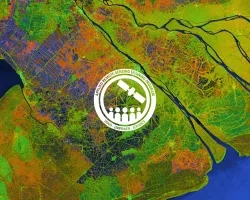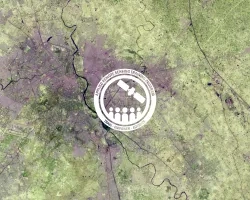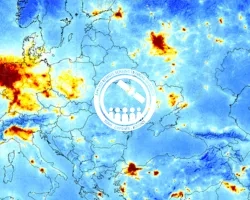Description
This training will focus on using remote sensing and geospatial data within the NASA-supported UN Biodiversity Lab (UNBL) to take action on national conservation and sustainable development priorities. With over 400 of the world’s best global data layers on biodiversity, ecosystem services, and sustainable development, UNBL enables decision-makers and policymakers to access essential global data, upload national datasets, and calculate dynamic indicators for any area of interest - all without any background in remote sensing and GIS. Fully redesigned in 2021 to improve functionality and better meet user needs, UNBL will be a key offering to support parties and other stakeholders to implement, monitor, and report on the CBD’s Post-2020 Global Biodiversity Framework (GBF).
This training offers three complementary courses -- an intermediate lecture series (Parts 1-3) and two advanced labs -- that participants can select among to choose the learning experience that best meets their needs. Our intermediate course will integrate lectures and Q&A to provide learners with an understanding of the power of spatial data to address key international commitments and a training on how to use all key functionalities of UNBL. Our advanced lab on the UNBL public platform will combine homework and live exercises to build participants’ confidence in their ability to use all features of UNBL. Our advanced lab on UNBL workspaces will combine homework and live exercises to equip participants with the needed skills to take full advantage of workspace functionalities. Speakers will include NASA scientists, UN policy specialists and data experts, and national policymakers.
This training will be offered in English, Spanish, and French. Participants can select any combination of the three courses. Certificates will also be issued independently for each. To register for the intermediate course, please click directly below. To register for either of the Advanced Labs, please scroll to the bottom of the page and click on the respective links.
Looking to engage on spatial planning after the course has closed? Join our Spatial Planning Group on Learning for Nature.
By the end of this training, attendees will be able to:
- Understand key global biodiversity and sustainable development policy instruments as they relate to conservation efforts.
- Utilize examples from inspiring countries using spatial data to take action for people and planet as a basis for your work.
- Summarize the types of data available on UNBL, and be able to identify specific datasets related to these themes.
- Explore how different combinations of data available in UNBL collections can generate insight and inform action related to key policy questions.
- Apply UNBL public platform features to search and visualize data, calculate dynamic metrics, create maps, and download data on the UNBL public platform.
- Use UNBL secure workspace features to add users and assign privileges, upload places, upload and style data layers, calculate dynamic metrics for your area of interest.
- National policymakers involved in conservation and sustainable development commitments to the Convention on Biological Diversity, UN Framework Convention on Climate Change, and the 2030 Agenda for Sustainable Development.
- UN system staff supporting projects and programs aligned with the UN Common Approach on Biodiversity and 2030 Agenda.
- Researchers and civil society stakeholders interested in using spatial data to implement, monitor, and report on projects operating at the intersection of biodiversity, climate change, and sustainable development.
Speakers:
Amber Jean McCullum (NASA ARSET), Lauren Weatherdon (UNEP-WCMC), Annie Virnig (UNDP)
- Identify different types of satellites and sensors that provide free, open source data to the global community.
- Understand key global biodiversity and sustainable development policy instruments as they relate to conservation efforts.
- Know the vision of UNBL and understand its basic functionalities.
- Learn from inspiring countries using spatial data to take action for people and planet.
Materials:
Speakers:
Di Zhang (UNDP), Annie Virnig (UNDP)
- Understand the types of data available on UNBL, and be able to identify specific datasets related to these themes.
- Explore how different combinations of data available in UNBL collections can generate insight and inform action related to key policy questions.
- Learn how to search and visualize data, calculate dynamic metrics, create maps, and download data on the UNBL public platform.
Materials:
Speakers:
Di Zhang (UNDP), Annie Virnig (UNDP)
- Understand the key functionalities of UNBL secure workspaces.
- Explore how to add users and assign privileges, upload places, upload and style data layers, calculate dynamic metrics for your area of interest.
- Be aware of upcoming functionalities to map Essential LIfe Support Areas and how they can support national planning for biodiversity, climate, and sustainable development.
Materials:
Speakers: Di Zhang (UNDP), Osgur McDermott-Long (UNEP-WCMC)
- Deep dive on UNBL public platform functionalities: search and visualize data, calculate dynamic metrics, create maps, download data.
- Demonstrate ability to independently use all functionalities of UNBL public platform.
To receive an alert for future offerings of the lab, please sign up for the UNBL mailing list.
Speakers: Di Zhang (UNDP), Osgur McDermott-Long (UNEP-WCMC)
- Deep dive on UNBL secure workspace functionalities: add users and assign privileges, upload places, upload and style data layers, calculate dynamic metrics for your area of interest.
- Demonstrate ability to independently use all functionalities of UNBL secure workspaces.
To receive an alert for future offerings of the lab, please sign up for the UNBL mailing list.
Presentation Slides Lab Sheet Homework



